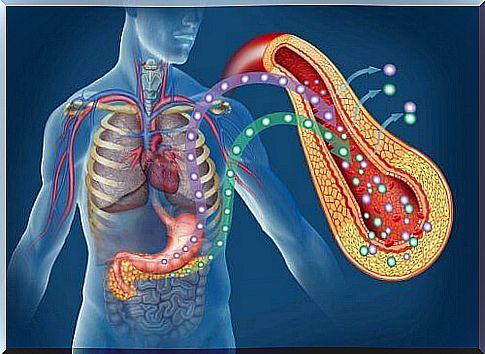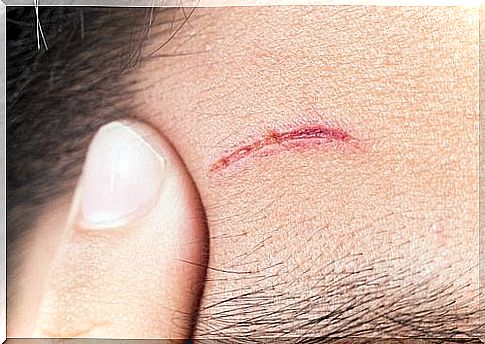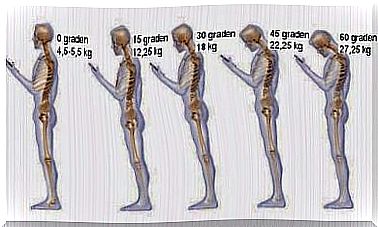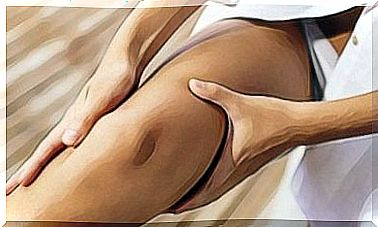Ten Signs Of Diabetes You Shouldn’t Ignore

Diabetes is one of those diseases that are also known as ‘silent killers’. That’s because it’s a disease that can develop without showing obvious symptoms. That makes it more difficult to diagnose.
What is particularly worrying, however, is that people who suffer from diabetes tend to ignore the early warning signs of this disease, confusing them with other common conditions.
Diabetes, an invisible danger
In fact, it is estimated that one in three people who have diabetes are not even aware of this, which naturally increases the risk of serious complications.
That is why it is so important to have a clear picture of what the early warning signs are. It is also important to know in which case you should consult a doctor. The latter can then have the appropriate investigations carried out.
Since most people are not yet aware of this information, in this article we share the top ten warning signs of diabetes.
1. Often the urge to urinate

Frequent urination can be a symptom of a urinary tract infection or can be caused by having too much to drink. However, if none of these causes are possible and you still feel a constant need to empty your bladder, this could also be a sign of diabetes. This is because the kidneys in diabetic patients have to work harder. This is necessary to expel the excess sugar from the body through the urine.
2. Constantly thirsty
This symptom is connected to the previous symptom. Because your body loses more fluid when you have to urinate often, your system tries to replenish this fluid. As a result, you are constantly thirsty.
3. An insatiable urge to eat

Hunger can be the result of:
- A blood sugar level that is too low, also known as hypoglycemia.
- High blood sugar, also known as hyperglycemia.
This is because your body cells do not receive the right amount of sugar, so certain signals are sent to your brain.
4. Dry mouth
Excessively dry mouth is not only unpleasant but can indicate several serious health problems. Dry mouth is a sign of dehydration, but it can also be a sign of type 2 diabetes.
Changes in the skin create an excellent breeding ground for bacteria. The risk of tooth and gum problems also increases.
5. Fatigue

Excessive or chronic fatigue is a symptom that you should never ignore anyway.
While it’s normal to feel tired when you’ve been exerting yourself physically, fatigue can also result from your body trying to make up for a lack of glucose. This symptom is exacerbated when the urge to go to the bathroom at night disrupts your sleep and thus prevents you from getting enough sleep.
6. Vision Problems
Your eyes are some of the organs most affected by diabetes. High blood sugar causes the shape of your lens and eye to change, making your vision blurry. Sometimes you may experience unpleasant flashes of light that distort your vision.
The worst part is that if left unchecked, diabetes can eventually lead to complete vision loss or the development of irreversible diseases.
7. Infections
Because bacteria, viruses and fungi can grow better in environments with high glucose levels, the risk of infections is increasing. Vaginal yeast infections, fungi, skin infections, urinary tract infections, and viruses are common symptoms in diabetic patients.
8. Numbness and Tingling in the Limbs

This symptom occurs because certain nerves are damaged. Both symptoms can be recurrent and accompanied by pain and inflammation.
If you don’t get this problem under control in time, the nerve damage can become permanent and cause serious problems.
9. Unexplained Weight Gain or Weight Loss
Unexplained weight gain or weight loss can be caused by the body’s inability to use insulin properly.
At the other extreme, the opposite reaction occurs, making you more likely to consume sugary foods, which ultimately leads to weight gain.
10. Difficult Healing

The damage to the blood vessels in your body hinders the natural healing process in your body from small cuts and scrapes. Too much sugar is bad for the veins and arteries, making them less able to send blood to the cells that repair these wounds.
Remember that it is important not only to be aware of the above warning signs, but also to know that you can prevent the development of diabetes by living a healthy lifestyle. In this case, it is therefore wise to avoid excessive weight gain, smoking, a sedentary lifestyle and eating habits based on eating saturated fats, sugars and processed foods.









